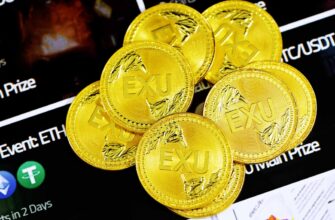- Is Bitcoin Halal? Navigating Cryptocurrency Through an Islamic Lens
- Understanding Halal and Haram in Islamic Finance
- What Is Bitcoin?
- Mufti Menk’s View on Bitcoin
- Arguments For Bitcoin Being Halal
- Arguments Against Bitcoin Being Halal
- Practical Guidance for Muslims Considering Bitcoin
- FAQ: Bitcoin and Islamic Finance
Is Bitcoin Halal? Navigating Cryptocurrency Through an Islamic Lens
The question of whether Bitcoin is halal (permissible) or haram (forbidden) in Islam has sparked intense debate among scholars and Muslims worldwide. With cryptocurrency’s rise, many turn to respected voices like Mufti Ismail Menk, a prominent Islamic scholar, for guidance. This article explores Mufti Menk’s stance on Bitcoin, Islamic finance principles, and how Muslims can approach cryptocurrency investments ethically.
Understanding Halal and Haram in Islamic Finance
Islamic finance operates under strict ethical guidelines derived from the Quran and Sunnah. Key principles include:
- Prohibition of Riba (Interest): Earning or paying interest is forbidden.
- Avoiding Gharar (Uncertainty): Transactions must be transparent and free from excessive risk.
- Asset-Backed Investments: Wealth must be tied to tangible assets or legitimate services.
- Ethical Compliance: Investments must not support haram industries (e.g., alcohol, gambling).
What Is Bitcoin?
Bitcoin is a decentralized digital currency operating on blockchain technology. Unlike traditional money, it isn’t controlled by governments or banks. Key features include:
- Limited supply (21 million coins)
- Volatile price fluctuations
- Use in both legitimate trade and illicit activities
Mufti Menk’s View on Bitcoin
While Mufti Menk hasn’t issued a formal fatwa on Bitcoin, he emphasizes caution. In a 2021 lecture, he highlighted concerns:
- Potential for exploitation and fraud in unregulated markets
- High volatility conflicting with Islamic principles of wealth preservation
- Risk of supporting unlawful activities indirectly
He advises Muslims to prioritize investments with clear halal foundations and consult knowledgeable scholars.
Arguments For Bitcoin Being Halal
Proponents argue:
- Decentralization: Aligns with Islamic ideals of economic justice
- Inflation Resistance: Fixed supply protects wealth from currency devaluation
- Transparency: Blockchain’s public ledger reduces gharar
Arguments Against Bitcoin Being Halal
Critics raise concerns:
- Speculation: Trading resembles gambling (maysir)
- No Intrinsic Value: Lacks physical backing like gold/silver
- Regulatory Risks: Potential for government bans
Practical Guidance for Muslims Considering Bitcoin
If exploring cryptocurrency:
- Consult a qualified Islamic finance expert
- Avoid margin trading and interest-based platforms
- Prioritize long-term holding over speculative trading
- Ensure transactions don’t fund haram activities
FAQ: Bitcoin and Islamic Finance
1. Has Mufti Menk declared Bitcoin haram?
No explicit prohibition, but he urges caution due to volatility and regulatory concerns.
2. Can Bitcoin replace gold as Islamic currency?
Scholars debate this—some accept it as mal-e-mutaqawwam
3. Is mining Bitcoin halal?
Permissible if energy costs are ethical and operations avoid haram partnerships.
4. How to use Bitcoin in zakat calculations?
Most scholars require annual valuation and payment equivalent to 2.5% of holdings.
While opinions vary, Muslims should prioritize investments aligning with Quranic principles of justice, transparency, and communal benefit. As Mufti Menk advises, “When in doubt, seek clarity—preserve your faith and wealth.”








